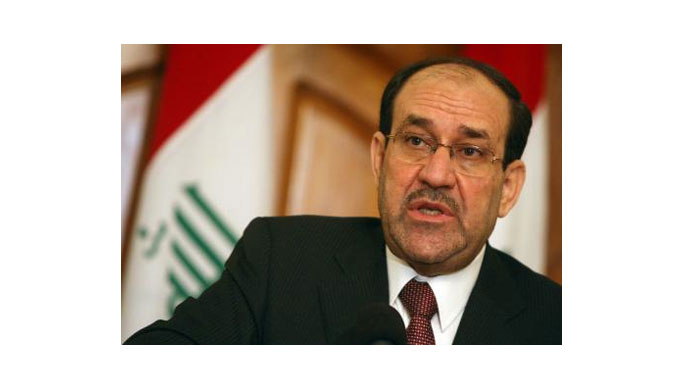Reuters/Baghdad
Prime Minister Nuri al-Maliki (pictured) and his security officials are to blame for the rise of Sunni insurgents who have seized parts of Iraq, the country's foreign minister said.
The comments by Hoshiyar Zebari, a Kurd, are likely to worsen relations between Maliki's Shia Muslim-led government and the Kurds, complicating efforts to form a power-sharing government capable of countering Islamic State militants.
At the stake is the survival of Iraq as a unified country. Islamic State have declared a medieval-style caliphate spanning parts of Iraq and Syria they control, alarming other Arab states who fear their campaign will embolden militants on their patch.
"Surely the man who is responsible for the general policies bears the responsibility and the general commander of the armed force, the ministers of defence and interior also bear these responsibilities," Zebari told al-Arabiya television.
"There are other sides who bear responsibility, maybe political partners, but the biggest and greatest responsibility is on the person in charge of public policies."
On Friday, Saudi Arabia's King Abdullah called on regional leaders and religious scholars to prevent Islam from being hijacked by militants. He named no groups but was alluding to violence in neighbouring countries, including Iraq and Syria, where the Islamic State has executed scores of people and imposed their radical views in areas they captured.
In July, the Kurdish political bloc ended all participation in Iraq's national government in protest over Maliki's accusation that Kurds were allowing terrorists to stay in Arbil, the capital of their semi-autonomous region known as Kurdistan.
Maliki is currently ruling in a caretaker capacity, having won a parliamentary election in April but failing to win enough support from the Kurdish and Arab Sunni minorities as well as fellow Shias to form a new government.
The US, the UN and Iraq's own Shia clerics have urged lawmakers to form a new government swiftly to deal with the Sunni insurgency.
Islamic State's offensive has whipped up sectarian tensions and threatened to dismember Iraq. The sectarian conflict poses the biggest danger to the Opec member's stability since the 2003 fall of Saddam Hussein after a US-led invasion.
Maliki has appointed Hussain al-Shahristani, the Shia deputy prime minister, as acting foreign minister.

